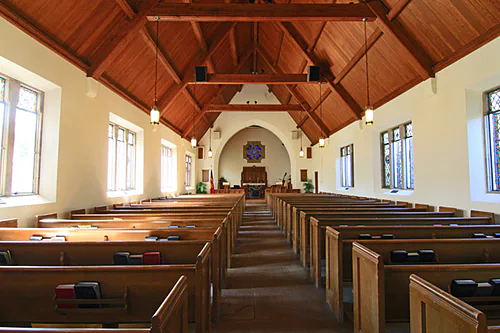Those churches that have declined speak silently to today's Chinese churches with a heavy cost—churches must prioritize succession and consider it a specialized and particularly important task, even if it requires a significant amount of time and effort.
Recently, a retired church leader from North China, Reverend Chen, shared his firsthand experiences, showing the looming pastoral succession crisis, especially in the past. He hoped that today's Chinese churches could learn from the negative examples.
Chen stated that the Church in China has suffered greatly in the aspect of church succession. After sharing an example of a once prosperous church in central China turning into a desolate one, he discussed the case of a northern church he experienced.
According to Pastor Chen, in a northern region, around the year 2000, a large church emerged, with hundreds of affiliated churches. The church leader, named John, was a martyr. When John was around two or three years old, his father was killed while spreading the gospel in South China. His mother, a devout Christian, never remarried and raised several children on her own.
When John was 19 years old, he felt a special calling from the Holy Spirit. At that time, China had not yet reformed and opened up to the world, which started in 1978. In nearby villages, John banged drums and promoted the gospel, often getting arrested.
John had no formal education and lacked cultural knowledge. In the local area, there were many small coal mines, and the economic conditions of church believers were relatively good, resulting in the church being wealthy. However, not far away were vast rural mountainous areas with scarce and poor-quality land, where people faced extremely challenging economic conditions.
To develop the church, John used the method of building houses for believers. As long as someone belonged to their church, the church took responsibility for building their houses, sparing believers from doing it themselves. Wealthier church members contributed money, while those provided labor. This approach caused a significant sensation at the time, as people were amazed that houses were being built for them for free. Just by doing this, John's church experienced rapid growth.
Chen had conducted cooperative training sessions with them in the past. However, this church eventually declined due to poor management and a failure in succession work. He remarked, "John simply didn't understand management, and he lacked education. How could he manage such a large church? It's one thing to haphazardly handle a small church when it's still small, but as the church rapidly expanded and developed, the inability to manage became a fatal problem." When a church expands and develops, previously hidden issues suddenly come to light.
John and his church were Charismatics, and God gave John many visions and dreams that were highly accurate in the beginning. Despite his lack of understanding of church management, the church staff, pastors, and believers all trusted him. However, as time went on, his visions and dreams became inaccurate, leading to unrest and problems within the church. What made matters worse was that John had no concept of a successor and didn’t train any successors, despite having many staff workers. One time, due to his old age and illness, he went to his son in another city for medical treatment. Seizing this opportunity, many church workers forcefully pushed for a change of leadership through elections. Many people had long been dissatisfied with John, and he was eventually removed from his position.
When John heard about the incident, he hurried back. However, in the end, he could only retrieve a few churches.
Reverend Chen shared these stories of churches unintentionally heading towards division and decline with the hope that today's Chinese churches will not repeat the same mistakes. The lessons from these past experiences are heavy, and the cost paid was too great.
- Translated by Abigail Wu












